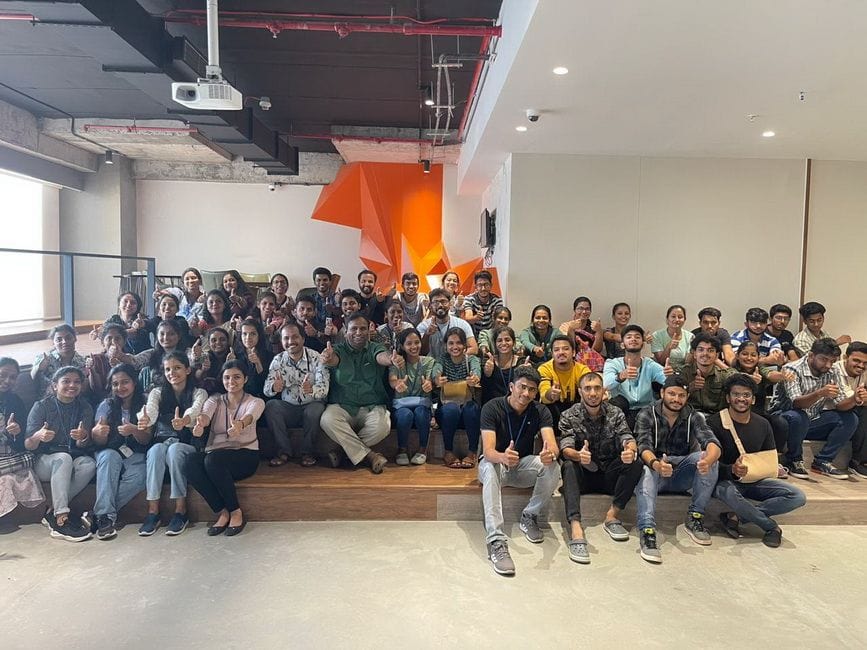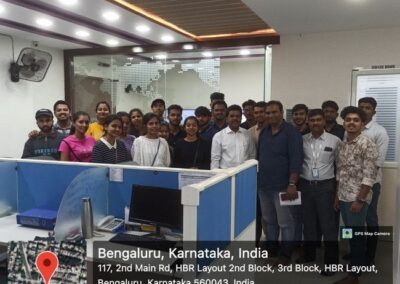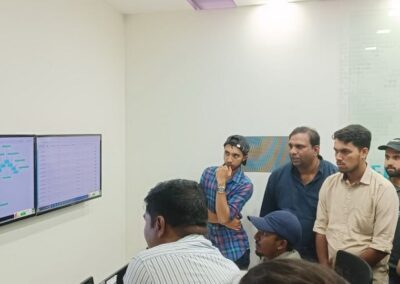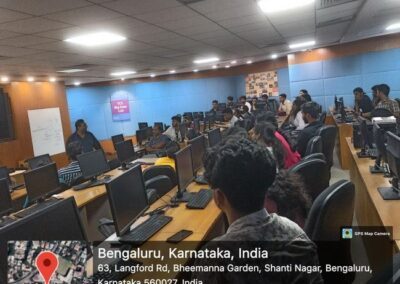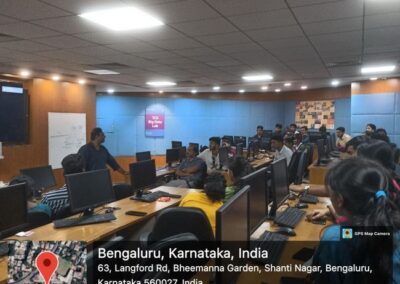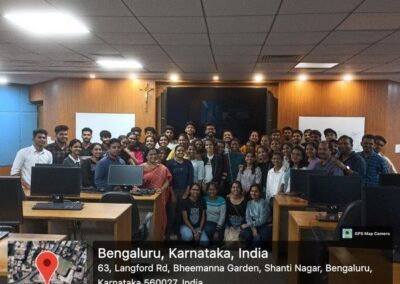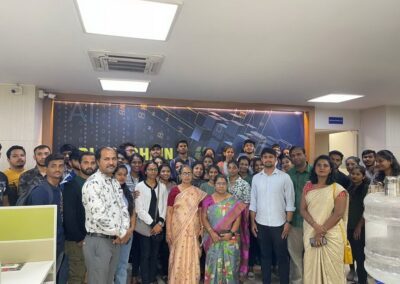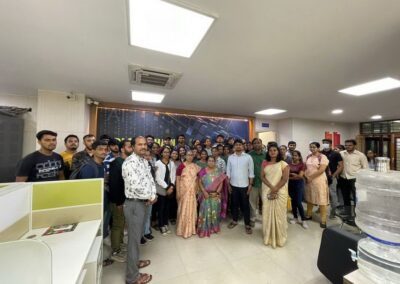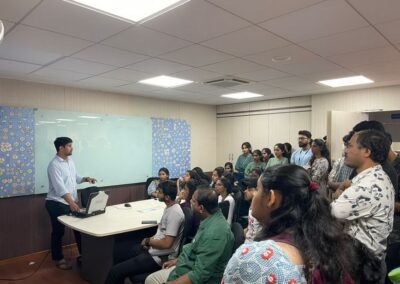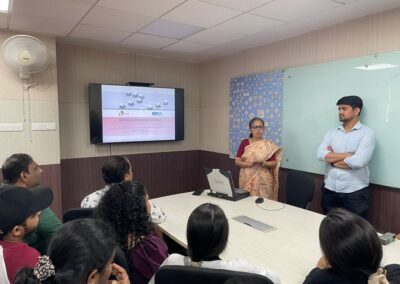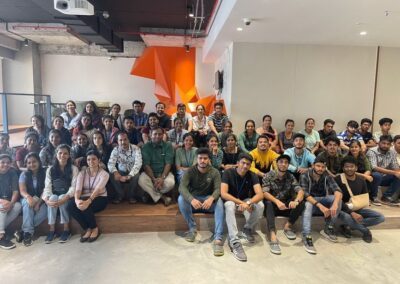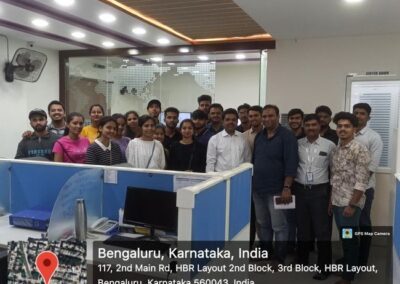On the first day, the students visited four companies: CloudZenix, Niramai Health Analytix followed by Pathcom Technologies and TCS Big data lab at St Joseph’s University (SJU).
At CloudZenix, a firm that provides cloud based solution, students were updated on various aspects of IT product development, consultation and managed services, The session was addressed by Raunaak Mitraand, Kirti and other professionals from CloudZenix.
The next stop was on Niramai Health Analytix, Bangalore, that has developed a non-invasive method of detecting breast cancer and is ranked as one of the innovative start-ups in the country. The session was addressed by Himansu. He spoke about their technologies, how they function, and the benefits they have over traditional technology. He also claimed that their technique can reduce costs to one-tenth of the available technologies and also discussed how their technology works, how the data was acquired and the research process they go through. He also clarified how AI and ML had a part in constructing their technology.
At Pathcom Technologies, Bangalore, which offers products and services in the areas of network, communication, IT, and video surveillance technology, growth through customer first approach and quality services is their stated mission. The session was addressed by Jude, the CEO of the firm. He elaborated on different aspects of networks and how internet works, how the wire connections for all networks operating throughout the world are connected underwater etc. He also did a demo using the Cisco stimulator.
Students then visited the Big Data Analytics lab, sponsored by Tata Consultancy Services at SJU. Fr Denzil Lobo SJ, Director of the centre gave an introduction about SUB and his past work experience in St Aloysius College. Later, Jayanthi gave a brief insight about the programmes, events, placements and the culture they follow in the campus.
Second day
On the second day, the first visit was to National Informatics Centre (NIC). NIC works in a technical landscape marked by the continual development of electronic devices and fast advances in ICT technologies such as Mobility, Cloud, Big Data, Artificial Intelligence, Blockchain and the Internet of Things (IoT). Having already made important contributions to R&D, NIC is trying to increase R&D activities inside the organisation in order to extend research activity in key fields and achieve proven widescale advances in government technology usage and management. Here, Swaminathan, one of the officials, briefed students about cloud computing as well as blockchain and about the data centre in NIC. Students were then taken around the data centre rack and national knowledge network and given a brief about its workings and the power systems.
Students then visited MResut Technologies centre. Rakesh Verma discussed the corporate work culture, ethics, and belief in a flat hierarchy. He also discussed the open cabins that the company uses to reinforce this concept. Because the work is so equally distributed there contrary to a startup, he said that having a window for development at MNCs is hard and the learning can freeze at a certain point.
Neeraj Pandey from NResult said that working at a firm will finally be about whether we need the firm or it needs us.
The students came back with added knowledge and information about the industry and its functioning.
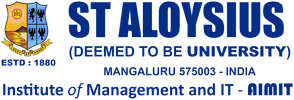

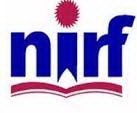 Ranked 58th
Ranked 58th